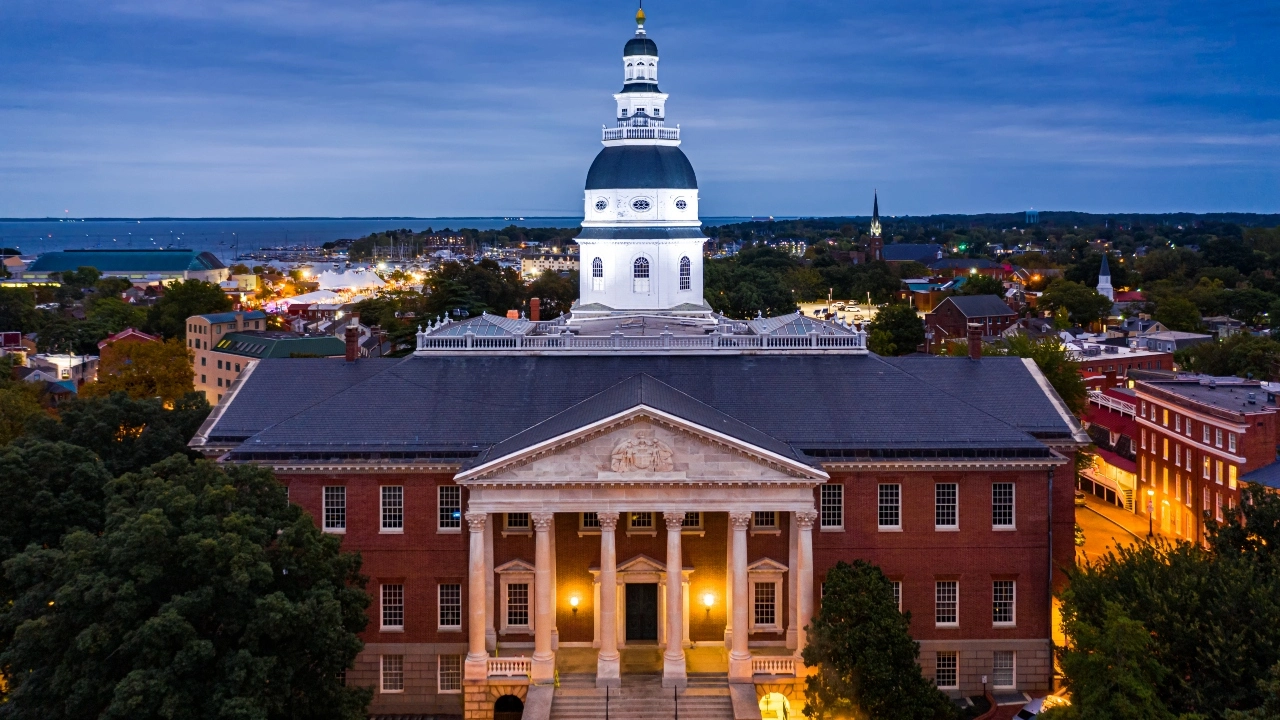(This story was updated at 6:13 p.m. ET Monday to correct the number of allowable store locations and to add Marijuana Policy Project comment.)
Maryland Gov. Wes Moore is expected to sign into law before a key Monday deadline legislation that sets regulations for adult-use marijuana sales and cultivation, just in time for the first legal sales to begin July 1.
Maryland residents voted overwhelmingly last November to legalize adult-use cannabis.
But the industry-funded ballot initiative left vital details – including licensing, taxation and whether the state’s existing medical cannabis businesses would get first crack at what could be a $2.1 billion market by 2027 – to state lawmakers.
After months of debate – including soul-searching over what went wrong with the contentious and drawn-out launch of the state’s MMJ industry and, according to The Washington Post, what’s gone wrong in other states – regulatory bills passed both the state House and Senate on Saturday.
Those approvals beat a deadline of midnight ET on Monday night, when Maryland’s General Assembly adjourns.
Sales will be subject to a 9% tax.
The 2023 MJBiz Factbook projects that recreational retail sales will total as much as $275 million this year and reach as high as $2.1 billion in its fourth full year.
Where marijuana is legal in the United States
Social equity applicants, meanwhile, will be able to sell adult-use cannabis in 2024 after a second round of licenses are awarded in January.
Licenses will be capped and divided into two categories: standard and micro.
The only storefront dispensaries will be awarded to standard licensees.
For standard licenses, which allow a cultivator to grow 10,000 to 300,000 square feet of canopy and a processor to manufacture more than 1,000 pounds a year, the state can issue no more than 300 retail retail permits, 75 cultivation permits and 100 processor permits.
The application fee is $5,000.
Vertical integration is allowed, but there will be no major statewide retail chains, as individual permit-holders will be limited to no more than one grow license, one processor license and no more than four stores.
For micro licenses, which limit cultivation to 10,000 square feet and processing to 1,000 pounds per year - and limit sales to delivery only, no storefront allowed - the state will issue 100 grower licenses, 100 processor licenses and 200 delivery-only "dispensary licenses."
Those application fees are $1,000.
The state will also issue 50 permits for on-site consumption lounges, but lounge licensees will not be eligible for sales or cultivation permits, according to the legislation, and will also be subject to a $5,000 application fee.
"We’re hopeful this final product will provide many opportunities for folks to be able to participate and be successful in all levels of the industry," Olivia Naugle, senior policy analyst for the Washington DC-based Marijuana Policy Project, said in a statement.
"Importantly, communities that have been disproportionately impacted by cannabis prohibition will also be able to benefit though the bill's establishment of a community reinvestment fund, which 35% of tax revenue will go to."
Adults 21 and older will be allowed to possess up to 1.5 ounces of cannabis and cultivate no more than two plants at home, according to the bill.
Qualified MMJ patients can grow four plants.
Chris Roberts can be reached at chris.roberts@mjbizdaily.com.





